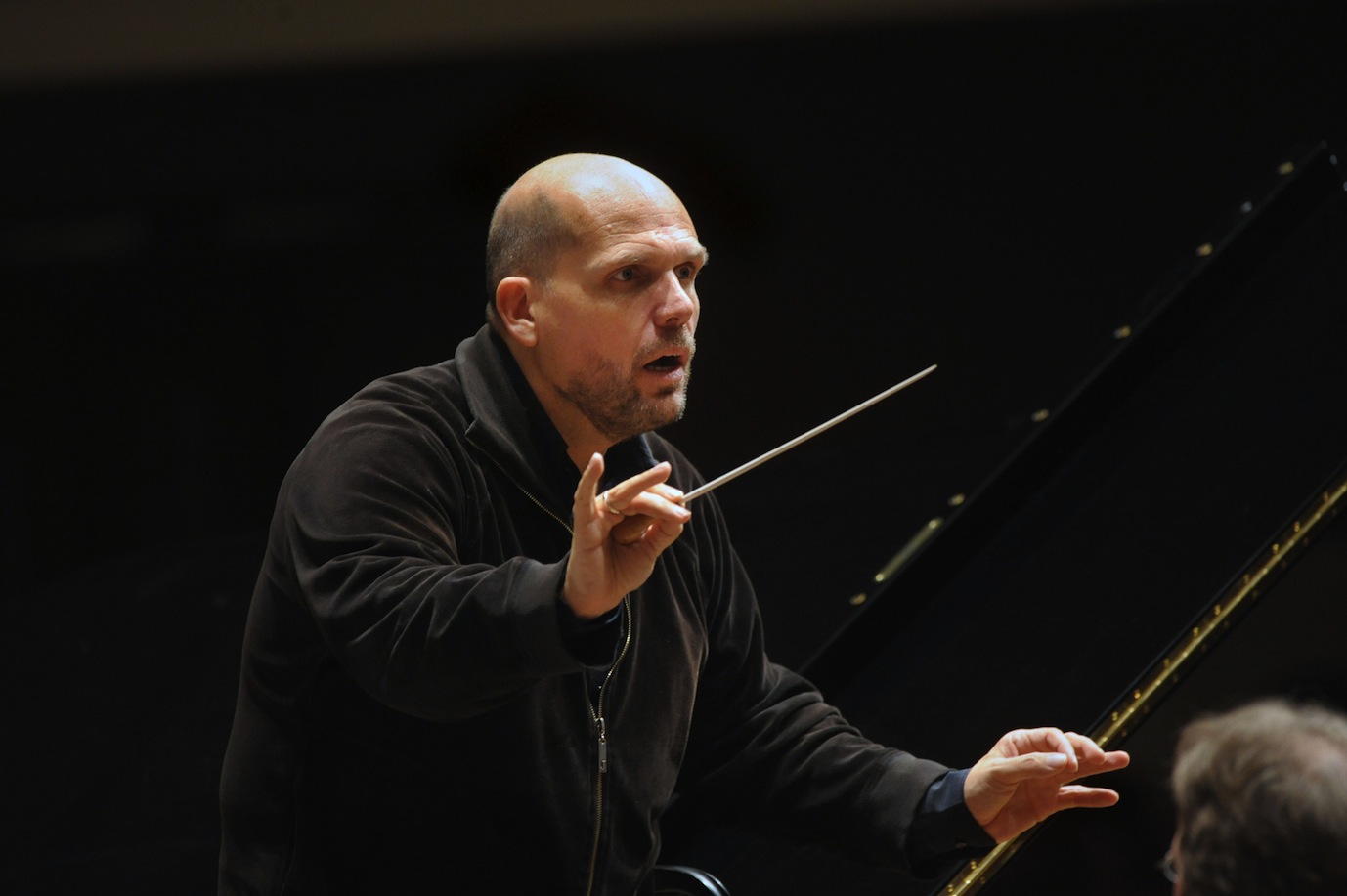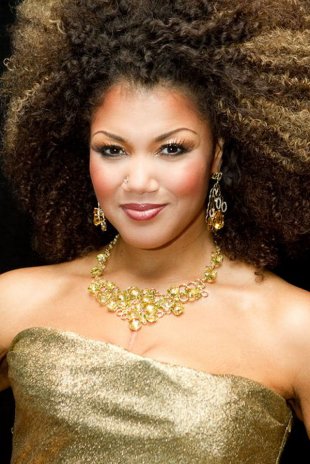Powerful Shostakovich from van Zweden, CSO

For fans of Dmitri Shostakovich, this is the week for you. The Pacifica Quartet will serve up the second installment of their complete Shostakovich quartet cycle Sunday afternoon. The same evening Jaap van Zweden will lead the Civic Orchestra in Shostakovich’s Chamber Symphony.
And Thursday night van Zweden conducted the Chicago Symphony Orchestra in a powerful performance of Shostakovich’s Symphony No. 8. The program will be repeated Friday night.
World War II and the terrible toll inflicted on the Russian people are clearly palpable in this sprawling 1943 work. But, unlike the composer’s tub-thumping Symphony No. 7, Shostakovich’s 62-minute Eighth seems as much about the enemy within as without.
There’s clearly some sense of the war’s carnage in the massive climaxes of the long opening movement. Yet the dark, driven quality of this music also seems to reflect the composer’s fear of that midnight knock on the door by Stalin’s police. The ensuing sections alternate between frantic energy and bleak desolation, as in the numbed Largo, and the final movement is neither victorious nor tragic, ending with a kind of wearily ironic resignation.
Van Zweden has built a close rapport with the CSO musicians in his previous podium appearances substituting for indisposed colleagues. In his subscription debut, the Dutch conductor drew a blistering, knife-edged performance from the orchestra.
If van Zweden didn’t consistently sustain tension in the first part of the vast Adagio that opens the symphony, once the music accelerated, and those jarring chords broke in, the performance became intensely dramatic and gripping. The conductor paced the movement’s long line skillfully, eliciting full-tilt outbursts in the grinding climaxes.
But van Zweden also elicited playing of extraordinary refinement and subtlety, with the dynamic marking of the Largo and concluding Allegretto hovering on the edge of audibility.
The Eighth is a real ensemble piece for a virtuosic band like the CSO and the musicians rose to its myriad challenges magnificently. Scott Hostetler’s plaintive English horn solo near the close of the Adagio was beautifully rendered, all the more affecting for its restraint. Other notable solos were provided by piccoloist Jennifer Gunn, Christopher Martin’s swaggering trumpet, Daniel Gingrich’s burnished horn, John Sharp’s cello, J. Lawrie Bloom’s bass clarinet, and, collectively, the percussion brigade led by Cynthia Yeh.
On paper, the first half of the concert looked like a perfect ramp-up to Shostakovich’s titanic drama, but in actuality proved disappointing.

Measha Brueggergosman is making her CSO debut at these concerts performing four Mahler songs from Des Knaben Wunderhorn. The Canadian soprano has been making a name for herself with some high-profile concerts and recordings but her shaky performances failed to live up to expectations.
The singer has the light flexible timbre and personality for Mahler’s settings of these rustic German poems. Yet Thursday night, her vocalism proved variable, to say the least. In the first two songs (Rheinlegendchen and Verlorne Müh’!) Brueggergosman’s thin-toned, unevenly produced singing failed to project to the balcony and words were largely indecipherable, unaided by her busy, animated head movements.
The soprano improved somewhat in the more somber expression of Wo die schönen Trompeten blasen and was heard to best advantage in the solemn reverence of Urlicht, even at an indulgent tempo that slowed the music to a crawl. Befitting its Mahlerian lineage, the orchestra provided characterful and attentive accompaniment, van Zwden scaling down the textures so as not to overwhelm his soloist. But this was not an auspicious CSO debut.
John Luther Adams’ music has been receiving increasing accolades in some quarters, which I confess I find baffling. This past April, the Alaskan composer was awarded the Nemmers Prize in composition by Northwestern University’s Bienen School of Music, a prestigious honor previously given to such composers as Kaija Saariaho, Oliver Knussen and the other John Adams.
His Dark Waves, heard in its CSO premiere Thursday night, is essentially an extended crescendo with deep rolling fifths, and some Reichian pulsing, combining large orchestra with electronics. Van Zweden’s fastidious control blended the live playing and electronic waves seamlessly and the orchestra performed with customary refinement, but I found this score unremittingly empty and vacuous.
The program will be repeated 8 p.m. Friday. cso.org; 312-294-3000.
Posted in Performances





Posted Oct 29, 2010 at 12:04 pm by Alexander
Great review, Mr. Johnson! The music of Shostakovich and Mahler speaks for itself and continues to inspire generations of listeners.
Unfortunately, the mystery remains how such an absolute piece of garbage as “Dark Waves” (fabricated by a composer who offers nothing of substance or value) can be allowed on the stage of Orchestra Hall. Just because something is ugly, repetitive, poorly-written, unimaginative, uninspiring, empty, and utterly pointless doesn’t make it good! Do you hear that, Mr. Adams?
Thankfully, the rest of the program was wonderful music – the CSO sounds incredible, as always.
Posted Oct 29, 2010 at 5:54 pm by chris
Wow! That last comment was harsh. Poor Mr. Adams.
Visiting from Dallas, it was a real treat to see our fine conductor in your city. The music was thrilling! Thank you, CSO, for living up to your long-standing reputation of excellence. I loved the evening and can hardly wait to return.
Posted Oct 31, 2010 at 12:31 am by Gregory Nigosian
Chris, thanks for visiting, and glad you liked the concert. You might not be pleased to hear this, but Friday night’s playing was even better in most regards. (Extra rehearsal on Thursday night helped. When this program is broadcast, I hope they use Friday rather than Thursday.) I’m looking forward hearing him conduct Shostakovich’s Chamber Symphony on Sunday night with the Civic Orchestra.
By now, I assume van Zweden has earned to right to name the works for his future guest appearances, which should be many. We’re glad he doesn’t have a 52-week exclusive contract with Dallas.
Alexander, I thought Adams showed himself to be quite familiar with Lyle Mayes and Pat Metheny’s “As Falls Wichita, So Falls Wichita Falls” from many years ago on ECM, including both the work which named the album, and the cut in tribute to Bill Evans. Any folks who know their way around Bill Evans — I assume Adams belongs here — much less Mayes and Metheney, are quite deserving of being on the stage of Orchestra Hall.
Larry, your comment “Yet the dark, driven quality of this music also seems to reflect the composer’s fear of that midnight knock on the door by Stalin’s police” suggests that you’d pair the 8th with the 4th, rather than the 7th. That seems exactly right to me.
(How either the 7th or 8th could follow the 5th — a work I’ve ceased being able to listen to anymore — is beyond my understanding, until I remember that they really are in a direct line from the 4th, not the 5th.)
I think it’s time to return to the issues discussed in Testimony, even if some of the assertions are disputed. Maybe the CSO and the Chicago Humanities Festival could devote a few sessions to those questions in some future year. (I know we have McBurney’s “Beyond the Score” commentary on the circumstanced of the 4th, but that discussion should be taken forward, and include the later string quartets and the 14th symphony.)